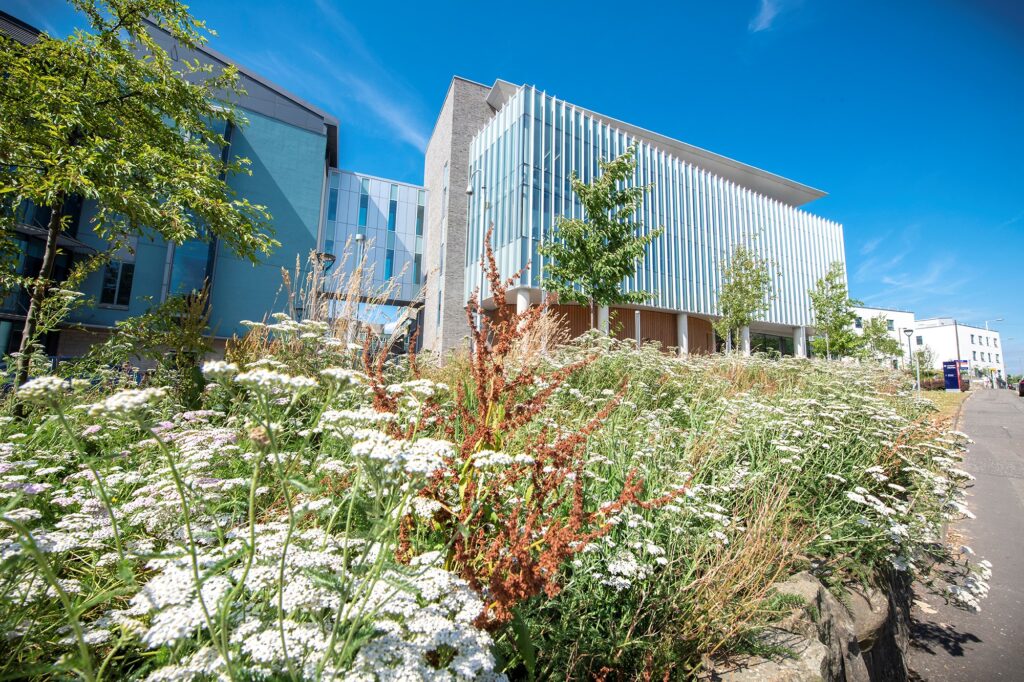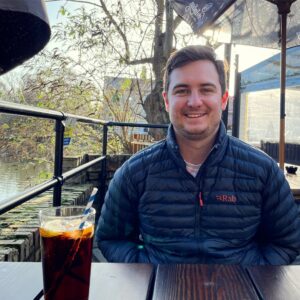Becoming a PhD student at the IGC

Image Credit: Institute of Genetics and Cancer
Intro
 I didn’t always want to do a PhD, in fact, I didn’t always want to be a scientist! At first, I even applied to be a vet. But I quickly realised it was science that I was actually interested in, so the injured animals will have to survive without me! I then did my degree in (molecular) biology and a master’s in molecular medicine, and I found myself primarily interested in the mechanisms underpinning disease and, importantly, how this knowledge can be applied translationally. It was during my master’s that I also discovered my interest in using both data analysis and statistics, during a COVID-enforced dry lab project. This was not something I had much experience in before. But I learned a lot and came to really enjoy digging into the data using R. This was one of the main reasons I chose to apply to the Human Genetics Unit (HGU) PhD programme, with the prospect of pursuing a project involving aspects of both “dry” and “wet” lab research.
I didn’t always want to do a PhD, in fact, I didn’t always want to be a scientist! At first, I even applied to be a vet. But I quickly realised it was science that I was actually interested in, so the injured animals will have to survive without me! I then did my degree in (molecular) biology and a master’s in molecular medicine, and I found myself primarily interested in the mechanisms underpinning disease and, importantly, how this knowledge can be applied translationally. It was during my master’s that I also discovered my interest in using both data analysis and statistics, during a COVID-enforced dry lab project. This was not something I had much experience in before. But I learned a lot and came to really enjoy digging into the data using R. This was one of the main reasons I chose to apply to the Human Genetics Unit (HGU) PhD programme, with the prospect of pursuing a project involving aspects of both “dry” and “wet” lab research.
Why do a PhD?
I didn’t jump straight into a PhD after my master’s because I wanted to be sure that I liked working in research first, and I wanted to develop my lab skills so that if I did decide to do a PhD, I would hopefully have a head start with any lab work. I enjoyed working as a research assistant, especially since I was allowed a good degree of independence with my own project. But, to progress further and to truly be in charge of my own research, I knew that I would need to do a PhD eventually.
Life as an HGU PhD student
 I found the initial training period to be a great learning experience, with workshops on using Linux to access Edinburgh’s supercomputer (Eddie), Git, R and python just to name a few, that I am sure will prove useful going forward. I have also really enjoyed seeing the genuine atmosphere of collaboration here, with many different labs across disciplines working together, strengthening each other’s research.
I found the initial training period to be a great learning experience, with workshops on using Linux to access Edinburgh’s supercomputer (Eddie), Git, R and python just to name a few, that I am sure will prove useful going forward. I have also really enjoyed seeing the genuine atmosphere of collaboration here, with many different labs across disciplines working together, strengthening each other’s research.
Edinburgh is also a great city to live in. I like to walk everywhere, as it’s not too big and is a very picturesque place, even in the rain! It’s also a short bus or train ride from some great places for hiking, so I’m excited to make the most out of that in future. I’ve also discovered a few really nice cafes so far, particularly in old town!
Advice for prospective PhD students
If you want to do a PhD, I would say it’s important to be sure that you like both the project you might be working on and also the place you will be living in, as 4 years is a long time! For the applications and interviews, my best piece of advice would be to make sure it comes across clearly why you picked that PhD, and why you would be a great fit for it (including examples of why!).



